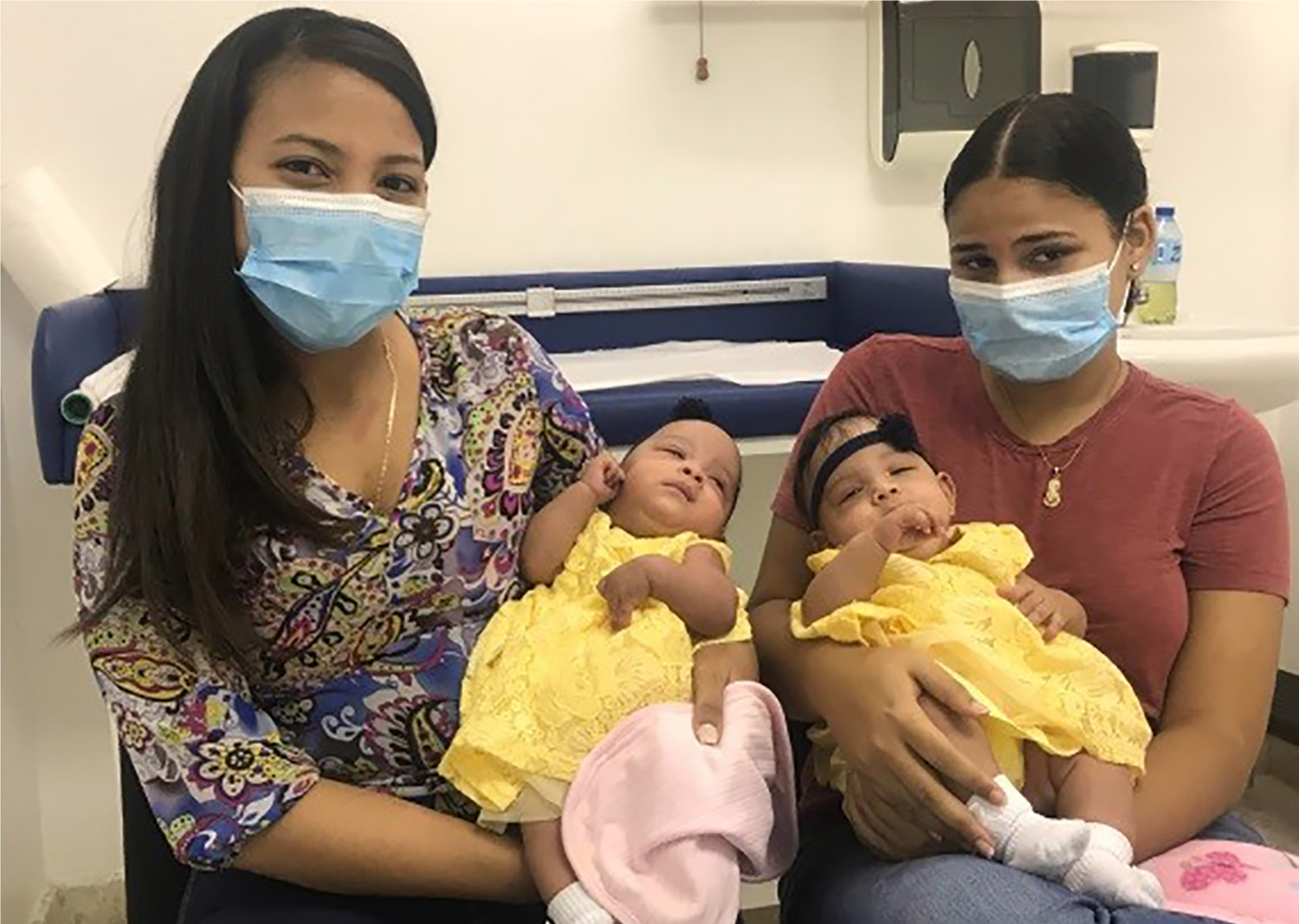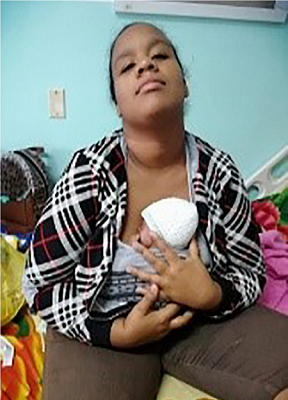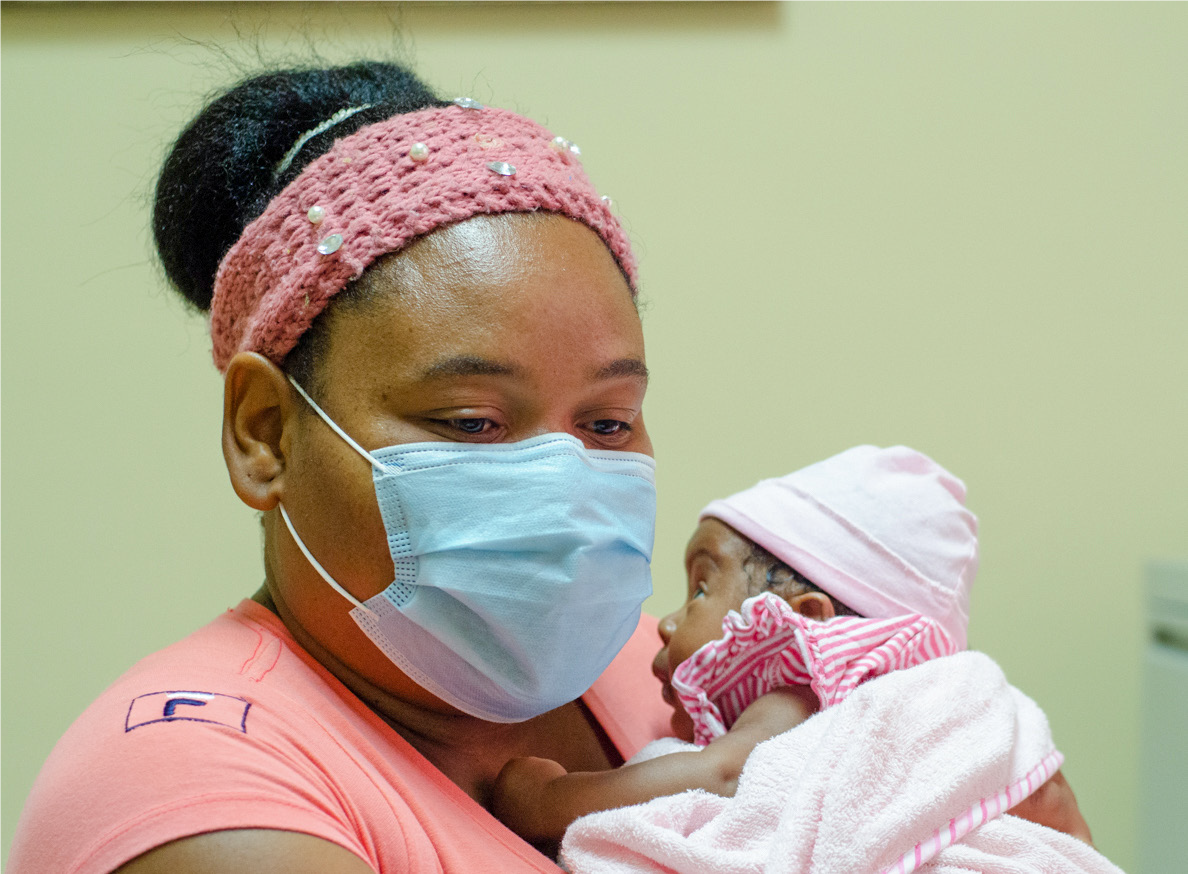UNICEF Helps Improve Care to Mothers and Newborns in the Dominican Republic Through Astellas Global Health Foundation Grant
According to the World Health Organization, women and newborns are most vulnerable during and immediately following childbirth.1 In the Dominican Republic, an estimated 28 per 1,000 live births will result in a death prior to age five.2
To help increase access to quality healthcare services for women and newborns, the Astellas Global Health Foundation awarded nearly $700,000 through a two-year grant awarded in 2019 to UNICEF USA for the Mothers and Babies in Good Care Initiative in the Dominican Republic. Through the initiative, UNICEF coordinates with 10 hospitals and community health centers to help provide safe conditions for newborn babies. They also provide high quality and safe care to the babies’ mothers. UNICEF is committed to ensuring these women are treated without fear of obstetric violence (e.g., dehumanizing treatment or medication abuse), which historically has had tragic consequences around the world. As part of these supportive efforts, UNICEF supports teaching the Kangaroo Mother Care (KMC) practice that uses skin-to-skin contact, typically a parent’s body, to warm and nurture a newborn baby, especially premature babies with low-birth weights.

Damaris with her twin daughters. Photo credit: ©️UNICEF/DR
One of the mothers helped by the Foundation’s support of this program was Damaris, who gave birth to premature twins in June 2020 at San Lorenzo de Los Mina Maternal and Child Hospital, after she had tested positive for COVID-19. Damaris was admitted to the Intensive Care Unit and stayed for 11 days after giving birth, which meant she was not able to bond with her newborn daughters. After Damaris was discharged, the hospital referred her to the KMC program, provided as part of The Mothers and Babies in Good Care Initiative, to learn the KMC protocol.
“I went from being worried to being happy, because from the beginning they explained everything I had to do, about breastfeeding, vitamins, coconut oil and massages. If it hadn’t been for the Kangaroo Mother Care program, my daughter’s development wouldn’t have been so fast,” said Damaris.

Jessica with her daughter. Photo credit: ©️UNICEF/DR
Another mother, Jessica, also benefited from the initiative. Not realizing she was pregnant, the 19-year-old single student did not receive prenatal checkups before delivering her daughter prematurely at 26 weeks. Jessica started the KMC protocol while in the neonatal unit of the Los Mina Maternal and Child Hospital for 15 days before moving to the KMC unit of the hospital where she continued to learn and practice for more than a month.
“At first, it was difficult day to day because I did not have much knowledge, and when I saw the state of the other premature babies, I was afraid. But for my baby I did everything the doctors told me,” said Jessica. “During the six weeks in the KMC center, I learned a lot about how to take care of my baby. The doctors and nurses monitored my progress, along with the psychologist Martha, and they helped me manage my baby by guiding me in the kangaroo position and breastfeeding.”

Nikauris with her daughter. Photo credit: ©️UNICEF/DR
Even for moms already with experience caring for their older children, taking care of a premature baby can be challenging. Nikauris is a married 27-year-old mom who is studying teaching. When she became pregnant again during the COVID-19 pandemic, she was only able to have six prenatal checkups at a community health center as part of safety protocols. When she felt labor pains at just 33 weeks of her pregnancy, she went to the emergency room at the Taiwan Hospital and delivered her daughter through an emergency cesarean section. Her daughter was admitted to the Intensive Care Unit for eight days, and Nikauris was able to start the kangaroo position in the newborn unit when she was five days old.
Nikauris said, “The [Kangaroo Mother Care] Initiative is a light in the desert for those mothers who, like me, had no way of facing a situation of prematurity.”
Learn more about how UNICEF is working to keep mothers and babies safe around the world, please visit UNICEF USA’s website.
1WHO | Data for maternal, newborn, child and adolescent health. [Internet]. WHO. Accessed on 1/27/21. Available from: https://www.who.int/maternal_child_adolescent/data/en/
2UNICEF | UNICEF Data: Monitoring the situation of children and women. [Internet]. UNICEF. Accessed on 1/27/21. Available from: https://data.unicef.org/country/dom/
